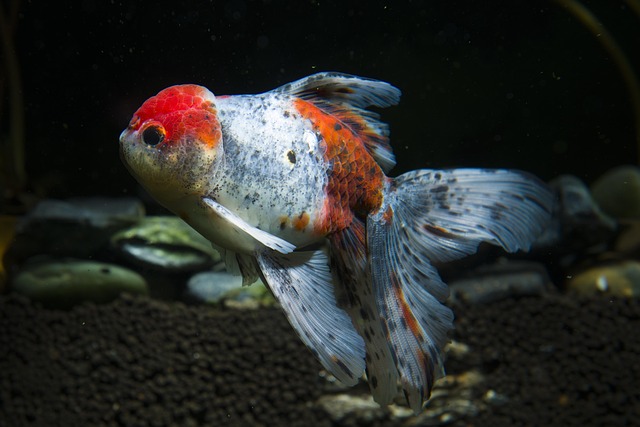Hotel lobby aquariums, despite aesthetic appeal, have significant environmental impacts due to energy consumption, chemical waste, and ecological disruption. Eco-friendly solutions include sustainable tank design with recycled materials and efficient filtration, responsible fish sourcing, closed-loop systems, and native plant integration. These practices minimize the ecological footprint of hotel lobby aquariums while enhancing urban spaces and promoting well-being.
Hotel lobby aquariums can be stunning architectural features, but their environmental impact is a growing concern. This article explores eco-friendly and sustainable solutions for these aquatic displays, focusing on everything from tank design using recycled materials to fish care practices that minimize waste and energy consumption. We also delve into the benefits and challenges of integrating nature into urban spaces, with a specific emphasis on hotel lobbies.
Understanding the Impact of Hotel Lobby Aquariums
Hotel lobby aquariums, while aesthetically pleasing, can have significant environmental impacts that are often overlooked. These aquatic displays attract guests and create a calming atmosphere, but they also require substantial resources to maintain. The water used in hotel lobbies needs regular changing, filtration, and treatment, contributing to high energy consumption and chemical waste generation. Moreover, the aquariums often house exotic species, which can pose challenges in terms of sustainability and ethical considerations.
The ecosystem within a hotel lobby aquarium is complex, requiring careful balance to ensure the well-being of the aquatic life. Improper management can lead to water pollution, habitat destruction, and even the spread of invasive species. As such, it’s crucial for hotels to adopt eco-friendly practices, such as using sustainable tank designs, implementing efficient filtration systems, and sourcing local or captive-bred fish to minimize the ecological footprint of their lobby aquariums.
Eco-Friendly Tank Design and Materials
Eco-friendly tank design and materials are transforming the way we think about hotel lobby aquariums. Instead of traditional glass, many innovative designs now utilize recycled plastics or acrylics that are both durable and environmentally conscious. These alternative materials reduce the carbon footprint associated with manufacturing and transportation, aligning perfectly with sustainability goals.
Furthermore, eco-friendly tank design incorporates energy-efficient lighting systems and water filtration technologies. LED lights, for instance, consume less energy than conventional options while providing ample illumination for aquatic life. Advanced water filtration systems not only maintain water quality but also minimize the use of chemical additives, contributing to a healthier ecosystem within the aquarium.
Sustainable Fish Care Practices
Sustainable fish care practices are essential components of eco-friendly aquarium solutions, especially in public spaces like hotel lobby aquariums. One key aspect is the responsible sourcing of aquatic life. Hotels and aquarium owners should prioritize acquiring species that are not endangered or negatively impacted by overfishing. This involves working closely with reputable suppliers who adhere to ethical collection methods. Additionally, implementing a closed-loop system can significantly reduce water usage. By recycling and filtering water within the aquarium, energy consumption is minimized, and the overall health of the aquatic ecosystem is maintained.
Regular water quality monitoring is another vital practice. Using advanced technology and sensors allows for precise control over parameters like pH levels, temperature, and nutrient concentrations. Proactive maintenance ensures a balanced environment, preventing harmful algae blooms or disease outbreaks. Furthermore, introducing native plants and habitats can enhance biodiversity while creating a more natural ambiance in hotel lobby aquariums. These practices not only contribute to the well-being of the aquatic inhabitants but also captivate viewers, fostering an appreciation for sustainable eco-friendly solutions.
Integrating Nature into Urban Spaces: Benefits and Challenges
Integrating nature into urban spaces, such as through hotel lobby aquariums, offers a multitude of benefits. These living displays enhance aesthetics, promoting a sense of tranquility and connection to the natural world amidst concrete jungles. Hotel guests and office workers alike can benefit from reduced stress levels and improved mood, thanks to these calming aquatic features. Furthermore, aquariums can serve as educational tools, fostering awareness about marine ecosystems and conservation efforts. They provide an opportunity to engage visitors in sustainable practices and promote responsible stewardship of our planet’s resources.
However, implementing hotel lobby aquariums also presents certain challenges. Maintenance requires specialized knowledge and consistent care to ensure the well-being of aquatic life. Space considerations are crucial, as these installations demand ample room for proper circulation and filtration systems. Additionally, energy consumption and water usage must be carefully managed to minimize environmental impact, aligning with sustainable practices. Despite these hurdles, thoughtful design and responsible management can transform hotel lobbies into harmonious blends of nature and urban living.
Hotel lobby aquariums, while aesthetically pleasing, can significantly impact the environment if not managed sustainably. By adopting eco-friendly tank design, utilizing recycled materials, and implementing responsible fish care practices, the hospitality industry can create beautiful and harmonious aquatic displays that minimize their ecological footprint. Integrating nature into urban spaces offers numerous benefits, from enhancing guest experiences to promoting biodiversity, but also presents challenges that must be carefully navigated. Moving forward, embracing sustainable aquarium solutions will not only benefit the planet but also elevate the hotel lobby experience to new, eco-conscious heights.
